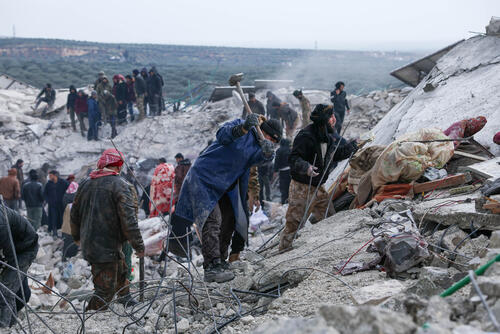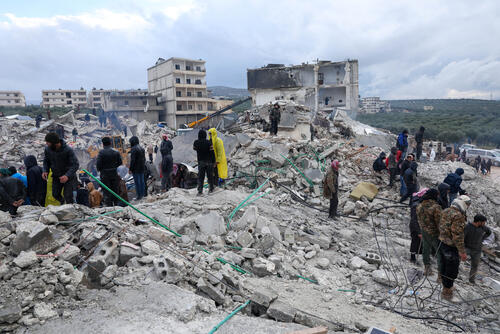Note 30 April 2024: This page is no longer being updated. Our response through our partners in Türkiye has ended in May 2023, while we integrated our response in Syria into our regular projects.
Our teams swung into action to respond in Syria within hours, and in the days after in Türkiye, working through local partners. In the days and weeks after the earthquakes, we provided medical care and the first of essential items, including blankets, and hygiene and cooking kits, to people who had been displaced in both countries.
Our response evolved in the months after, when we improved water and sanitation services, reconstructed damaged health facilities and provided mental health care to people traumatised by the events and by the losses they had experienced. Our response through our partners in Türkiye finished at the end of May; in Syria, six months after the quakes, we integrated any ongoing response into our regular projects.
MSF response to the earthquakes in Syria and Türkiye
198,477
198,477
110,835
110,835
8,026
8,026
10,100
10,1
38,154
38,154
96.6
96.6
Featured
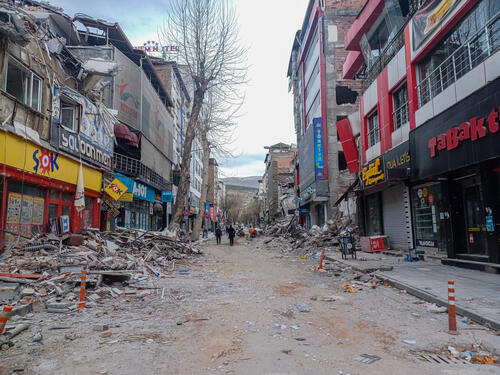
Surviving among the rubble: Syria and Türkiye one month on
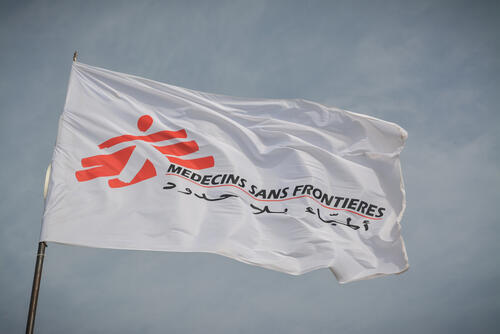
MSF remains committed to providing care in all areas of Syria
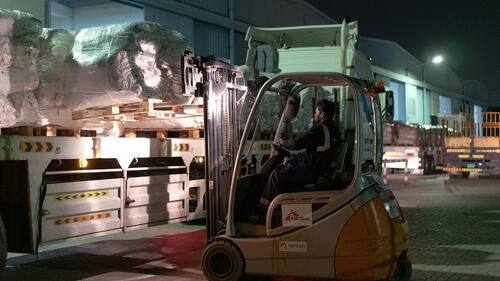
MSF calls for urgent assistance to people in northwest Syria
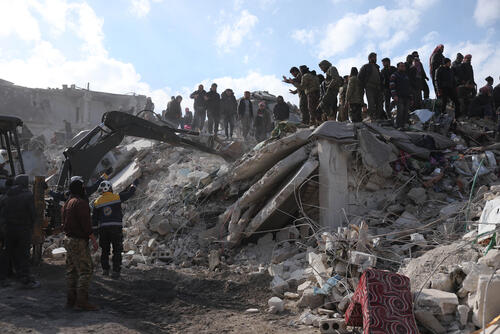
Hospitals overwhelmed after earthquakes: “The rooms were covered in blood”
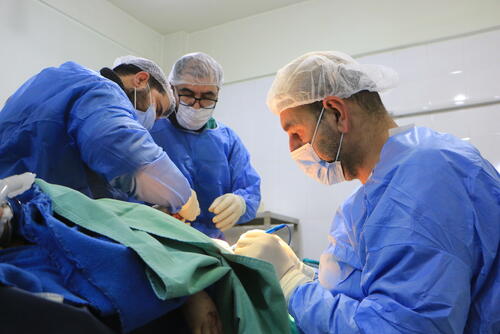
Vital needs grow in northwest Syria after the earthquakes
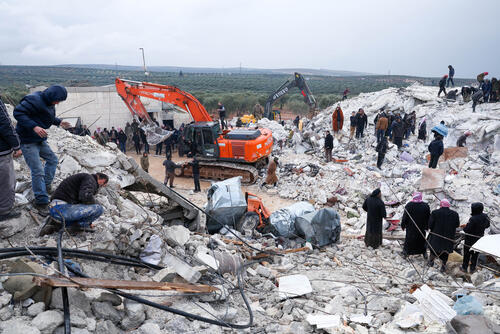
People in northwest Syria need urgent support after earthquakes
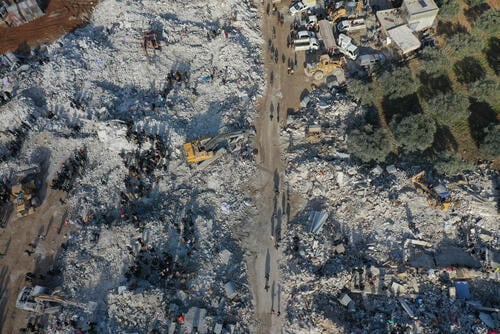
Four things to know about the earthquake response in Türkiye and Syria
